Updated October, 2021)
In this day and age, I like to think that we are all aware of and educated about postpartum depression (PPD). I think a lot of pregnancy and newborn books talk about it and most doctors will at least ask about baby blues. Still, as someone who struggled after her first child was born and before her second child was born, it seemed important to at least acknowledge this important but difficult topic.
What is PPD
Postpartum depression is the term used for depression that is pervasive during and after birth. PPD has three levels of intensity to it, all with different terms: baby blues, postpartum depression, and postpartum psychosis.
Baby blues are probably the most talked about. These are the feelings of sadness and incompetence that many new parents feel. Baby blues occur in 70%-80% of women. It typically looks like mild weepiness and may include anxiety and insomnia.
Postpartum depression is considered the middle ground and is found in as many as 1 in 7 women. Not to be taken lightly though, PPD is a more debilitating type of grief. It can look like crying often, belief that you cannot take care of your child, loss of appetite, and even thoughts of harming yourself or your child. It will typically be more severe than baby blues and lasts longer. It also tends to not go away on its own.
Postpartum psychosis is the most severe of these three. It manifests in hallucinations, incoherent statements, and bizarre behavior. This condition, though treatable, should be seen as a medical emergency and help should be sought out immediately. This condition is found in 1 in 1,000 women.
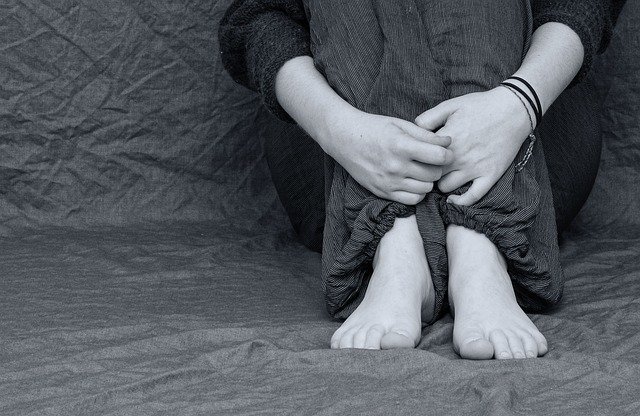
What Causes PPD
Doctors really can’t agree on what causes PPD. While it is generally believed that PPD is caused by significant and rapid hormonal changes that a woman experiences after birth, this does not explain why adopting parents or fathers can also experience PPD. I do know that families who have strong support networks are less likely to experience PPD but it is still possible.
Having PPD doesn’t mean that there is anything ‘wrong’ with you. Your brain isn’t broken, you aren’t doomed for life. It just means you may need a little extra support.
What to Do When You Have PPD
If you think you have the baby blues, you might be able to wait it out. Talk to family members, loved ones, and especially other moms. Know that it’s ok to cry sometimes and there is nothing wrong with you if you need to take space from your baby. On the opposite end of the spectrum, if you or someone you know suffers from postpartum psychosis, seek help immediately, including going to a hospital.
For PPD, I would not suggest waiting it out. I tried this approach with my first child and I believe it is a significant reason I suffered while pregnant with my second child as well. Had I sought out help the first time, I may have had an easier time with my second pregnancy. Finding a therapist is my first suggestion. I used Psychology Today and searched for someone in my area that accepted my health insurance and specializes in PPD.
You can also talk with your doctor and mention you are struggling with depression. They may be able to offer you some anti-depressants and a referral to a good therapist. I broke down crying with my primary care provider and she gave me a great recommendation for a therapist. This is especially helpful when the very idea of finding a therapist is so exhausting you can’t even start to look.

Other Things to Keep in Mind
Do not underestimate the power of your support network.Even just having someone else to talk to. I was feeling guilty with Monster that I didn’t want to hold them every second of every day, that I wanted space, that I missed other adults. I happened to mention this to a friend and she told me that didn’t make me a bad mom. That it was probably healthy and very inline with who I am that I couldn’t hold my baby 24/7. That validation meant a lot to me, and sometimes that’s all you need. Building a support network can really help you focus on your child and your health. Doing this can lower your chances of the affects of PPD.
Eating well and exercising can also help you recover and stay positive. This isn’t just because of how you might be feeling about yourself and your body after birth. It’s also because exercise and eating well will simply help you feel good. Exercise gives you endorphins and eating well can help level your mood.
As much as we always talk about PPD for women, be aware that men can also suffer from PPD. So if your feel your partner isn’t engaging with your child, struggling to form a bond, inattentive, and even a little sad or withdrawn, know that it may not have anything to do with your relationship or your family. They may simply have their own depression.
As always, know that you are not alone. A lot of women suffer from PPD and never get help for it due to fear, feelings of failure, and taboo. For women having thoughts of self harm or harming others, it’s scary to think your child might be taken away from you. Even I can admit that for weeks in my second pregnancy I went to bed and had thoughts of suicide almost every night. I knew I would never actually do anything, but there was no way I would ever admit it to anyone else in case they tried to take my child from me or put me in a hospital. Instead I suffered alone and cried myself to sleep every night, as so many women do.
My point is that this doesn’t have to be you. Reach out to a trained professional and get the help you need. There is nothing to be ashamed about, and the sooner you can get the help you need, the better you can bond with your new bundle of joy.
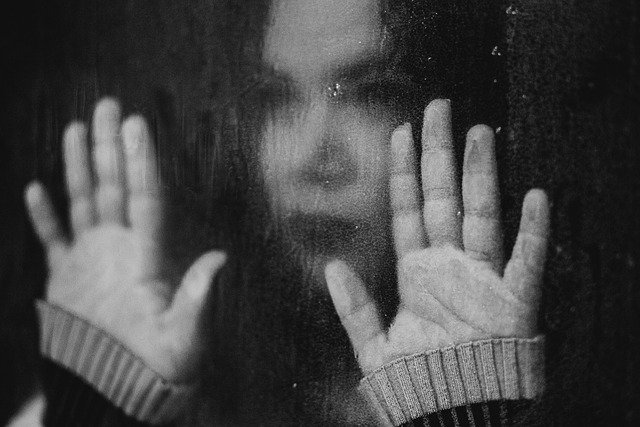
Resources
- Postpartum Support International
- 1-800-944-4ppd (4773)
- Postpartum.net
- 24/7 Statewide Crisis Line (Colorado)
- 1-844-493-8255
- Text TALK o 38255
- National suicide hotline
- 1-800-Suicide(784-2433)
- The Tevor Project Hotline (LGBTQ+)
- 1-866-488-7386
- Text START to 678678
- www.selfinjury.com
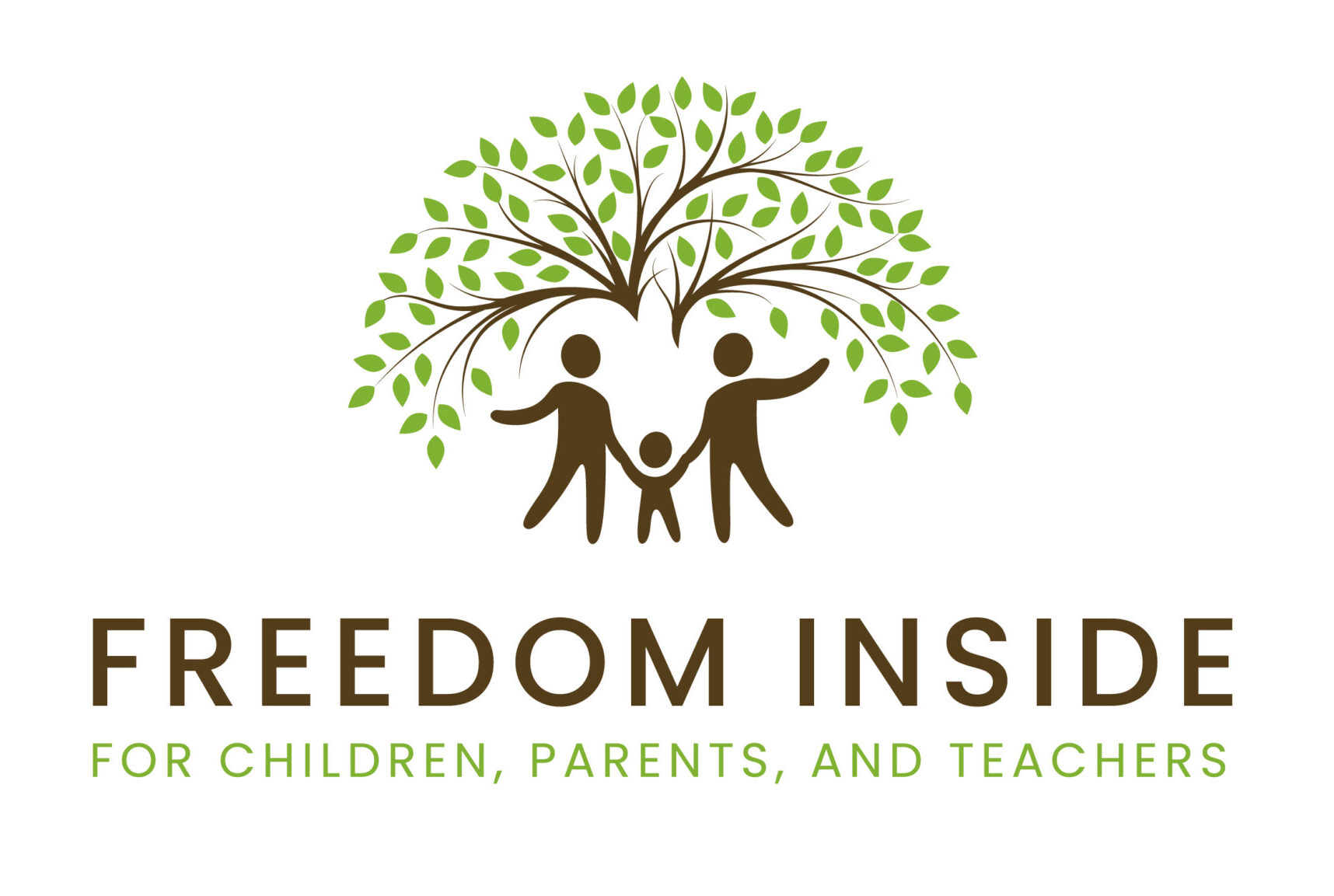
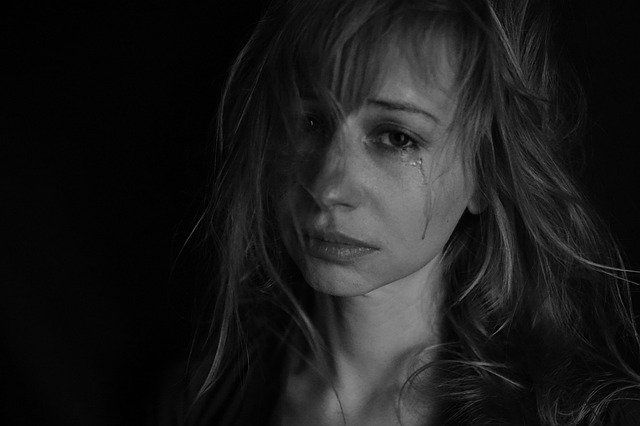
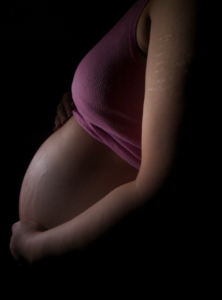


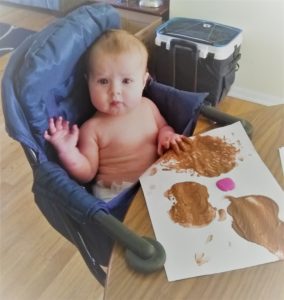
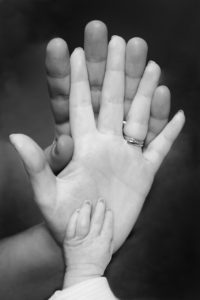






I’m sorry you went through that all alone! Big hug—I love you!
Pingback: Breastfeeding for New Moms: How to and Is it Right for You? - Freedom Inside the Box